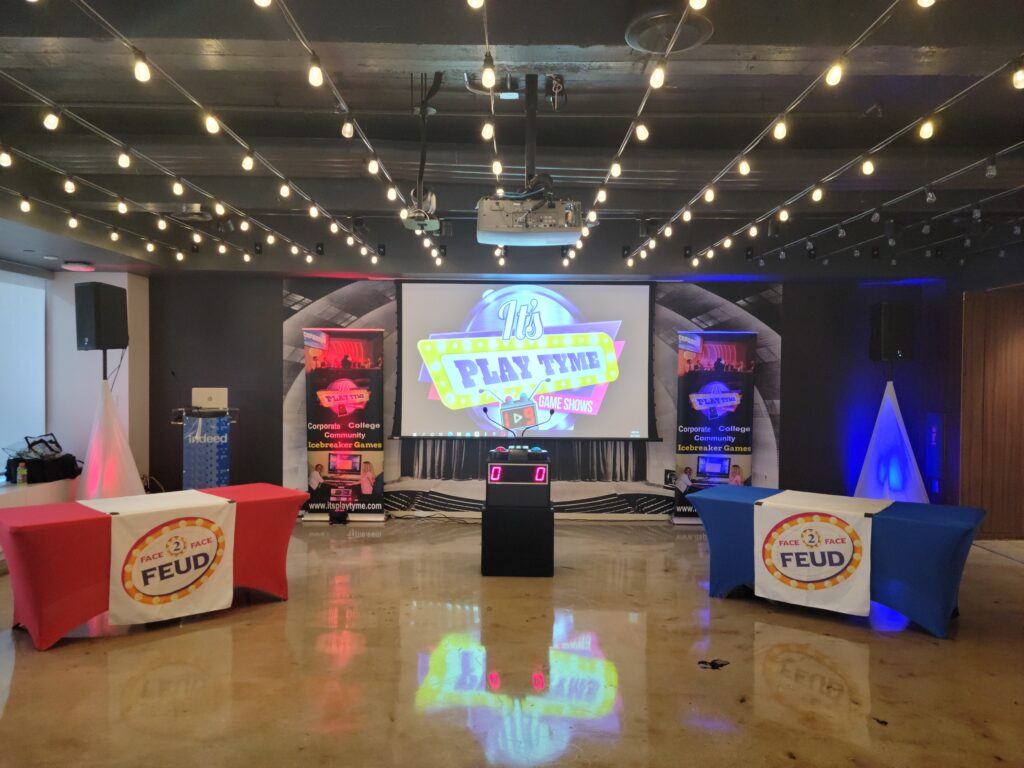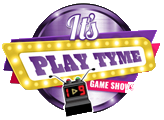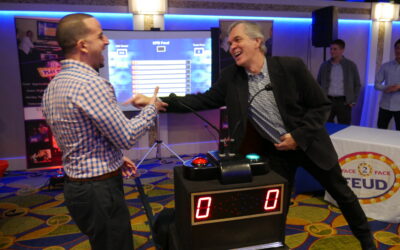As someone who’s navigated the choppy waters of workplace dynamics, I can attest to the transformative power of team building participation.
But what eludes many organizations is the secret behind ways to boost team building participation.
It’s not just about having your team show up to events; it’s about fostering genuine engagement that propels the entire team forward.
Crafting that magnetism that draws each member in—and keeps them hooked—is both an art and a science.
This article is your canvas and analytical lab, detailing how you can sculpt an engaged team and create a cohesive team environment that not only survives but thrives.
Boost Team Building Participation Today!
Key Takeaways
- Understand the essential role of active participation and engagement in team building initiatives.
- Discover innovative ways to elevate team building participation within your organization.
- Learn to leverage participation strategies as a means to enhance team unity and workplace morale.
- Uncover the benefits that a more connected and engaged team can bring to productivity and communication.
- Explore the best practices that successful companies have employed to boost team building participation.
Looking for exciting team building engagement games, click here.
Understanding the Importance of Team Building
As I delve into the intricacies of effective team building, one can’t help but notice the subtleties that make it the cornerstone of building strong teams.
In today’s organizational fabric, team collaboration is more than a buzzword; it’s an essential component of a thriving workplace environment.
Let’s explore why dedicating resources to fostering team unity is not just beneficial, but imperative for any successful entity.
The essence of team building lies in its ability to enhance not only productivity but also employee satisfaction.
But don’t just take my word for it. Statistical data unmistakably links high levels of team engagement with superior job performance.
Equally important is the way team building helps in diffusing conflict—a key aspect of harmonious workplace dynamics.
Harvard Business Review highlights that “Close work friendships boost employee satisfaction by 50%.
“People with a best friend at work are seven times more likely to engage fully in their work.” Hence, effective team building is not just about activities;
it’s about crafting relationships and connections.
Let’s consider a table that breaks down the tangible benefits of investing in team building infrastructures:
| Benefit | Description | Impact |
|---|---|---|
| Interdepartmental Collaboration | Breaks down silos and encourages cross-functional teamwork | Leads to innovative solutions and comprehensive project success |
| Mutual Support | Promotes a culture where employees feel valued and supported | Increases work-life balance, reducing burnout and turnover rates |
| Communication Skills | Improves clarity and understanding across diverse teams | Enhances overall productivity and minimizes misunderstandings |
| Employee Morale | Team building activities boost collective spirit and camaraderie | Drives engagement and loyalty, which can reflect on customer satisfaction |
On a macro level, renowned companies like Google and Zappos don’t just perform team building; they live it.
Their cultures are a testament to the fact that investment in the personal growth and synergy of employees pays dividends in the form of innovation and market leadership.
Imagine a workplace where every morning is greeted with anticipation for collaborative creativity, where the team isn’t just a team, but a close-knit community, striving together towards greatness.
That’s the power of effective team building events.
Identifying Obstacles to Team Participation
When we explore the landscape of team building activities, we often discover hindrances that can dampen the enthusiasm and performance of our teams.
It’s imperative to recognize and navigate these challenges to promote effective team participation.
I’ve learned through experience that addressing these roadblocks is essential for facilitating successful group dynamics and fostering a culture of active engagement.
Recognizing Individual Barriers
Individual barriers present a significant impediment to team building.
These can stem from diverse sources, such as introverted personalities hesitant to engage in group activities, or a lack of motivation rooted in personal or professional dissatisfaction.
It’s crucial to identify these issues early on to ensure that team building activities are inclusive and cater to individual needs, thus promoting overall team participation.
Addressing Group Dynamics Issues
Group dynamics also play a pivotal role in either propelling or stalling team collaboration efforts.
Issues such as unclear leadership, power struggles, or resistance to change can severely impact a team’s ability to work effectively together.
By understanding and resolving these concerns, we pave the way for a more harmonious and productive team environment.
| Type of Barrier | Examples | Potential Solutions |
|---|---|---|
| Personality Clashes | Introversion, Strong Opinions | Personality assessments, tailored activities |
| Lack of Motivation | Low engagement, Minimal effort | Individual recognition, Motivational incentives |
| Inadequate Leadership | Poor direction, Lack of support | Leadership training, Defined roles |
| Resistance to Change | Defensiveness, Denial | Change management strategies, Clear communication |
Understanding and addressing the mix of individual barriers and group dynamics issues is key to cultivating a robust foundation for team building activities.
As we progress, the aim is to not only identify the obstacles but to surpass them, enhancing team participation and the efficacy of our collective efforts.
Strategies for Effective Team Building
Creating a cohesive and high-functioning team does not happen by accident. It takes a combination of well-planned team building strategies, engaging team building games, and thoughtfully designed team building exercises.
In my approach to crafting these strategies, I ensure they are adaptable, inclusive, and, most importantly, effective in strengthening bonds within the team.
I’ve seen first-hand how clear goal-setting and open communication lay the groundwork for successful team dynamics.
To this end, I advocate for the incorporation of a variety of exercises and games that not only target specific skill sets but also foster an environment of growth and enjoyment.
These activities have been instrumental in transforming groups of individuals into united teams.
- Begin each session by outlining the objectives and expected outcomes.
- Encourage open dialogue to understand and respect diverse perspectives.
- Create smaller teams to facilitate deeper connections.
- Periodically rotate team members to promote versatile relations.
- Utilize problem-solving exercises to improve collaborative skills.
| Exercise | Objective | Duration | Outcome |
|---|---|---|---|
| Trust Fall | Build trust among team members | 30 min | Increased reliance and bonding |
| Escape Room Challenge | Enhance problem-solving and collaboration | 1 hour | Improved communication and team synergy |
| The Marshmallow Challenge | Stimulate innovative thinking and ingenuity | 45 min | Boosted creativity and team strategy |
| Two Truths and a Lie | Foster personal connections and break the ice | 20 min | Personal bonding and fun |
Looking for exciting team building engagement games, click here.
When considering team building, flexibility is crucial. Sessions should adapt to the unique rhythm and composition of each team, accounting for individual strengths and weaknesses.
In my professional experience, teams that consistently engage in tailored, purpose-driven exercises not only excel in their tasks but also report higher satisfaction and motivation.
My ultimate goal in applying these strategies is to witness the transformation of workplace environments.
By choosing the right mixture of team building exercises and team building games, I’ve seen teams move past mere collaboration to achieve true camaraderie and excellence in performance.
Got Games? PRESS PLAY! #boostmorale
![]()
Book a live game show experience today!
Contact us for further details.
We come to your office, venue or off-site location..
For Immediate assistance by text – 917-670-4689
No deposit required. 5-star rated on google.
When it comes to fostering a vibrant and collaborative workforce, engaging team building activities take center stage.
For me, as a proponent of effective team dynamics, it’s clear that the mundane ‘trust fall’ no longer cuts it.
Instead, we need to dive into the pool of creativity, where interactive games and outdoor challenges light up the path to improved teamwork and trust.
Interactive Games for Team Engagement
I have found that interactive games are brilliant sparks for team engagement.
They prompt laughter, strategy, and more importantly, a shared experience that can translate into better communication back in the office.
Games like escape rooms and puzzle challenges directly contribute to problem-solving skills and foster a sense of achievement upon completion.

Escape Room Alternative
Outdoor Trust Building Challenges
Outdoor challenges, on the other hand, can often lead to breakthrough trust-building moments.
Imagine a scavenger hunt across the city, or a high-ropes course that really tests one’s mettle.
These are more than just exercises; they are shared stories that your team will carry back, along with a deeper sense of trust in their peers’ abilities and intentions.
Both interactive games and outdoor activities have reshaped the landscape of engaging team building.
They provide a refreshing break from the office while still targeting core team-building objectives.
Their impact on trust, communication, and morale is palpable, making them a must-have in any company’s team development toolkit.
Exploring new avenues for fostering camaraderie and collaboration among employees,
have found that innovative team building events not only break the monotony of the workplace but also inject an element of enjoyment and challenge that spur personal and group development.
Let’s examine some pioneering event ideas that could be your next big hit for enhancing team dynamics.
Off-Site Team Building Retreats
Getting away from the usual office environment can work wonders for a team’s morale and unity.
Off-site team building retreats provide a refreshing backdrop where employees can engage in professional and personal growth activities.
Surrounded by nature or in a different city, the change of scenery often results in fresh perspectives and renewed energy.
These retreats can range from outdoor adventure challenges to workshops facilitated by industry experts, all designed to enhance teamwork and individual competencies.
Hosting Themed Team Building Days

Face-2-Face Feud
Looking for team building engagement games, click here.
Themed team building days are another brilliant strategy to reignite your team’s spirit. By incorporating a specific theme, you add an exciting layer to the experience.
Whether it’s a sports day, a cultural festival, or a futuristic tech fair, these themes offer countless possibilities for creativity and engagement.
Not only are they fun, but they also encourage members to think outside their conventional roles and interact in different capacities.
| Type of Event | Key Benefits | Examples | Frequency Recommendation |
|---|---|---|---|
| Off-Site Retreats | New environment for fresh perspectives, Increased camaraderie, Deep-dive into strategic sessions | Mountain lodges, Beach resorts, Countryside hotels | Annual or Biannual |
| Themed Days | High engagement through exciting themes, Cultural inclusivity, Enhanced creativity | Superhero day, Retro ’80s, International Food Festival | Quarterly |
Whether you opt for the serenity of an off-site retreat or the exuberance of a themed celebration, what remains key is the shared experience that contributes to a more solidified and effective team.
As I venture into planning these team building events, the focus on innovative, shared experiences promises not just a day away from the desk, but a lasting contribution to the team’s collaborative strength and work culture.
7 Ways to Boost Team Building Participation
One of my focal points in enhancing workplace dynamics is shedding light on actionable ways to boost team building participation.
Below I’ve charted out some participation strategies that leverage the allure of team building workshops and immersive experiences to amplify engagement.
Take a look at these hands-on participation strategies designed for maximum impact.
- Incentivize Engagement: Offering rewards can make team building activities more appealing. Recognition for participation can range from verbal acknowledgment to concrete rewards like gift cards or a team lunch.
- Personalize the Experience: Tailoring activities to team interests spurs enthusiasm. Knowing what motivates your team is key to crafting sessions that they genuinely look forward to.
- Communicate Purpose: People are more likely to engage when they understand the value. Emphasize how team building directly contributes to personal and team growth.
- Integrate Feedback: Create a loop where team members can suggest activities or improvements. This empowers them and can increase investment in team building exercises.
- Promote Leadership Opportunities: Rotate team members to lead sessions. This not only fosters leadership skills but also breaks the monotony.
- Ensure Accessibility: Removing barriers to participation is critical for inclusivity. Ensure activities cater to all members regardless of physical ability or work schedule.
- Follow-Up on Lessons Learned: Reinforce the benefits of participation by integrating team building takeaways into everyday work activities.
Let me provide you with a detailed examination through a comprehensive table highlighting various participation strategies for team building activities.
| Strategy | Application | Expected Outcome |
|---|---|---|
| Active Listening Workshops | Workshops aim to improve communication skills through various exercises. | Leads to more effective collaboration and a better understanding among team members. |
| Professional Development Seminars | Offering sessions that align with team members’ career goals. | Enhances individual growth and fosters a culture of continuous learning. |
| Creative Thinking Sessions | Initiate brainstorming challenges to stimulate fresh ideas and innovative thinking. | Cultivates a creative work environment and encourages out-of-the-box thinking. |
| Interdepartmental Mixers | Host casual get-togethers for different departments to network and engage. | Breaks silos and promotes a more integrated company culture. |
| Volunteer Initiatives | Organize team volunteer days for causes important to the team. | Builds team spirit and provides a sense of accomplishment and community contribution. |
The implementation of these team building participation strategies can vary greatly depending on the size, culture, and nature of a team.
It’s essential to maintain a flexible approach and adapt these strategies to meet the unique needs of your team.
Lastly, consistent efforts in engaging your team in team building workshops not only improves participation levels but also contributes significantly to shaping a robust, collaborative, and dynamic work environment.
Designing Inclusive Team Building Exercises
As someone who understands the multifaceted nature of workplaces, I champion inclusive team building.
It’s vital to create experiences that resonate with everyone, making each team member feel valued and integrated within the collective group.
Forging exercises that accommodate the broad spectrum of individual personalities, strengths, and needs is the cornerstone of an inclusive environment. Let’s explore practical ways to bring this vision to life.
Catering to Different Personalities and Strengths
To embrace the rich variety of personnel in any organization, diverse team building exercises must reflect an array of interests and capabilities.
These activities should engage extroverts and introverts alike, challenge the analytical thinkers, and inspire the creative minds.
Sustainability is created not by fitting individuals into pre-conceived molds but by building frameworks that acknowledge each person’s unique contributions.
- Problem-solving tasks to stimulate critical thinking
- Role-playing scenarios to foster empathy and communication
- Collaborative workshops that play to individual strengths
Ensuring Activities are Accessible to All Members
Inclusivity extends far beyond personality traits—it’s about ensuring accessible team activities that dignify all levels of physical ability and cultural backgrounds.
This inclusivity translates into more than just participation; it brings about an alignment of shared values where diversity is not merely accepted, it’s celebrated.
| Activity Type | Tactics for Inclusivity | Benefits |
|---|---|---|
| Creative Endeavors | Provide various mediums and formats | Encourages expression from all personalities |
| Physical Challenges | Adapt exercises to accommodate differing abilities | Ensures no one is sidelined due to physical limitations |
| Cultural Celebrations | Incorporate holidays and traditions from various cultures | Respects and honors diverse backgrounds |
| Virtual Collaboration | Utilize technology for remote involvement | Makes participation possible for geographically diverse teams |
By taking a holistic and thoughtful approach to team building, we can curate an environment that reflects the values of equality and respect. This ethos not only fosters a more united workforce, but it also emboldens a culture of innovation and adaptability.
Utilizing Technology for Team Collaboration
As the landscape of team collaboration continues to evolve with advancements in technology, it is vital to stay ahead by integrating the latest digital tools into team projects.
These technologies not only streamline workflows but also open up new avenues for creativity and innovation.
I’ll be unpacking the essentials of two high-impact technological trends: sophisticated digital tools that facilitate project collaboration and the immersive realm of virtual reality for creating groundbreaking remote team building experiences.
Incorporating Digital Tools in Team Projects
Embracing team collaboration technology is no longer optional but a necessity in today’s fast-paced work environment.
To foster collaboration, it’s essential to leverage a suite of digital tools designed for team efficiency and engagement.
Here’s an overview of some leading digital tools for teams that are reshaping collaboration:
- Communication Platforms like Slack and Microsoft Teams enable instant messaging and file sharing.
- Project Management Software such as Asana and Trello help teams keep track of tasks and deadlines.
- Cloud Storage Services including Google Drive and Dropbox allow for seamless file accessibility and synchronization.
Leveraging Virtual Reality for Remote Team Building
Meanwhile, virtual reality (VR) is moving beyond the gaming world and entering the corporate sphere as a powerful virtual reality team building tool. VR experiences are not only novel and engaging but also effective in cultivating empathy, enhancing communication, and building trust amongst team members, regardless of their physical location.
Below is a table comparing traditional team building activities with VR-driven exercises:
| Traditional Team Building | Virtual Reality Team Building |
|---|---|
| Physical Icebreakers | VR Icebreaker Games |
| Face-to-Face Meetings | Virtual Meetings in VR Spaces |
| Outdoor Challenges | Simulated Team Challenges in VR |
| Creative Workshops | VR Creative and Design Workshops |
By integrating cutting-edge VR experiences into the fabric of remote team building, we’re not just breaking geographic barriers but also enriching the skills and interactions that underpin successful team dynamics.
Looking for exciting team building engagement games, click here.
In conclusion, as we harness these powerful technologies for team collaboration, we’re not only optimizing our current ways of working but also paving the way for future innovations in team dynamics.
Whether it’s through utilizing digital tools or immersive virtual reality experiences, it’s clear that technology is an indispensable ally in building cohesive, engaged, and high-performing teams.
Measure the Success of Your Team Building Efforts
To ensure that our team building ventures truly deliver on their promise, it’s imperative that we not only set quantifiable objectives but also implement a system for collecting participant feedback.
This approach allows us to stay on course with our desired outcomes and make informed adjustments for upcoming events.
Setting Clear Goals and Objectives
Central to this process is defining what success looks like. Is it improved communication? Enhanced problem-solving?
Or perhaps increased employee engagement? By pinpointing our team building goals, we create a benchmark against which we can measure our progress.
Gathering Feedback to Improve Future Events
The voice of the team is a catalyst for continuous improvement. Gathering team building feedback post-event is a non-negotiable step.
It’s a meaningful way to understand participant experience and gain insights into the strengths and weaknesses of our activities.
| Goal/Objective | Metrics for Success | Feedback Received | Improvement Actions |
|---|---|---|---|
| Enhance Inter-Team Communication | Number of cross-team collaborations | Surveys indicate a 25% improvement in interdepartmental tasks. | Schedule monthly cross-team meetings |
| Increase Employee Engagement | Employee Net Promoter Score (eNPS) | Feedback shows heightened staff morale | Implement gamified engagement platforms |
| Improve Problem-Solving Skills | Frequency of innovative solutions implemented | Reports of increased confidence in handling complex tasks | Regular creative thinking workshops |
Armed with this data, I am better poised to tailor future team building initiatives that are not only enjoyable but also strategically aligned with our core values and corporate objectives.
Through this careful calibration, we are able to clearly measure team building success and drive meaningful growth within our organization.
The Role of Leadership in Team Building
My examination of team building leadership explores the critical influence leaders have on the success of team development efforts.
Leadership in building teams is not merely about delegating tasks and orchestrating activities; it’s about inspiring a shared vision and demonstrating a commitment to team growth.
In my experience, leaders who actively participate in team building activities signal a dedication to fostering a strong organizational culture.
Leaders set the tone for their teams by modeling the behavior they expect from others. From my perspective, a leader’s active involvement in team building can range from spearheading exercises to being receptive to innovative ideas from team members.
It can also include offering resources necessary for team building programs and ensuring that such initiatives are aligned with overall company goals.
- Establishing trust through consistent leadership involvement
- Communicating clear objectives and expectations for team building
- Providing resources and support to execute team building plans
Additionally, the effectiveness of team building leadership can often be seen in how leaders address challenges that arise during team activities.
For instance, when conflicts occur, a leader’s mediating skills are crucial for resolution and maintaining a positive atmosphere.
“Leadership is not just about giving energy… it’s unleashing other people’s energy.” – Paul Polman
Indeed, I’ve noticed that team buildings under strong leadership tend to yield a more cohesive and motivated workforce.
The correlation between invested leadership and successful team building outcomes has been evident in various scenarios I’ve encountered throughout my career.
In conclusion, leadership in building teams is about being the catalyst for change by championing a culture of collaboration, innovation, and mutual respect.
It’s an ambitious yet achievable goal, one that I am passionate about and continuously striving to implement in my approach to team buildings.
Planning Ahead for Continuous Team Development
In my professional journey, I’ve seen the transformative power of continuous team development and its indispensable role in fostering an invigorated and versatile workforce.
While one-time events can spark the initial flame for teamwork, it is the unyielding dedication to growth and learning that truly sustains it.
Let me impart to you the cornerstones that I believe will help in crafting a future-oriented strategy, securing the ongoing evolution of our team’s capabilities.
Regularly Scheduled Team Building Sessions
To ensure the wheel of progress continues to turn, integrating scheduled team building into the fabric of an organization is paramount.
These sessions serve as vital checkpoints that not only revisit the core values and shared goals of a team but also keep the rhythm of collaboration alive.
By instituting regular encounters, we are consciously nurturing a supportive environment that facilitates continuous team development, allowing members to seamlessly integrate new competencies and understanding within the group’s dynamic.
Investing in Ongoing Training and Workshops
Moreover, the commitment to ongoing team training cannot be overstated.
Through consistent educational workshops and skill enhancement programs, we arm our teams with the most recent knowledge and methodologies, ensuring that they are well-equipped to meet the ever-changing demands of their roles and the industry at large.
This investment not only evidences our belief in their potential but also reinforces our dedication to their personal and professional advancement, a gesture that invariably results in a more engaged and proficient team.
FAQ – Boost Team Participation

frequently asked questions
What are some ways to boost team building participation?
To boost team building participation, you can offer incentives, align activities with team interests, encourage leadership support, and ensure that the activities are fun and engaging.
It’s also effective to communicate the benefits of participation, and personalize the team building experience to your team’s unique dynamics.
Why is team building so important in creating an engaged team?
Team building is essential as it fosters better communication, strengthens interpersonal relationships, promotes a sense of camaraderie, and can help to resolve conflicts.
Engaged teams result in increased productivity, a more positive work culture, and can contribute to higher employee retention rates.
How can we identify and overcome individual barriers to team participation?
Individual barriers can be identified through surveys, feedback, and observation.
Overcoming these barriers involves addressing personal concerns, providing adequate support, offering tailored incentives, and ensuring that team-building activities are inclusive and cater to diverse personalities and skills.
Can you share some strategies for effective team building?
Effective team building strategies include setting clear goals, choosing the right activities, fostering a supportive environment, encouraging open communication, and incorporating regular feedback.
Additionally, it’s important to involve everyone in the process and make sure the activities align with the team’s values and objectives.
What are some engaging team building activities that promote teamwork?
Engaging team building activities range from problem-solving exercises, such as escape rooms or scavenger hunts, to creative workshops and sports.
Activities that require collaboration, communication, and strategy, such as interactive games or trust-building exercises like tandem obstacle courses, are particularly effective.
What makes team building events innovative and successful?
Innovation in team building events often involves unique themes, unexpected locations, or integrating technology in a meaningful way.
Successful events are those that leave lasting impressions, bring out new strengths within the team, and contribute to a sense of shared achievement.
How can team building workshops increase participation levels?
Workshops are interactive and educational, offering hands-on experiences that can engage team members more deeply.
By directly relating the activities to professional and personal growth, and providing a platform for active participation, workshops can greatly increase team engagement levels.
What are some inclusive team building exercises?
Inclusive team building exercises are those that cater to different personalities, strengths, and abilities.
Options include collaborative art projects, group discussions on various topics, role-playing activities, and team cooking challenges.
The key is to ensure that each activity allows every member to contribute in a meaningful way.
How can technology enhance team collaboration?
Technology can enhance team collaboration by providing digital tools that streamline communication and project management.
Virtual reality and other immersive technologies can offer remote teams unique ways to connect and engage in collaborative problem-solving, regardless of physical location.
How should we measure the success of our team building efforts?
Measuring success involves setting clear, measurable goals prior to team building activities, and soliciting feedback afterward.
Analyzing engagement levels, observing improved communications, and tracking the achievement of stated objectives can all serve as indicators of successful team building.
What role does leadership play in team building?
Leadership is critical in team building as leaders set the tone, embody the culture, and provide the resources necessary for effective team development.
They are responsible for motivating participation, aligning team building activities with organizational goals, and ensuring the sustenance of team dynamics over time.
Why is planning for continuous team development important?
Continuous team development is important because it helps maintain the momentum of team cohesion and fosters ongoing growth.
By having a long-term plan, teams can build upon successes, continually enhance skills, and adapt to change more effectively, ensuring sustained team performance and adaptability.
Got Games? PRESS PLAY! #boostmorale
![]()
Book a live game show experience today!
Contact us for further details.
We come to your office, venue or off-site location..
For Immediate assistance by text – 917-670-4689
No deposit required. 5-star rated on google.





